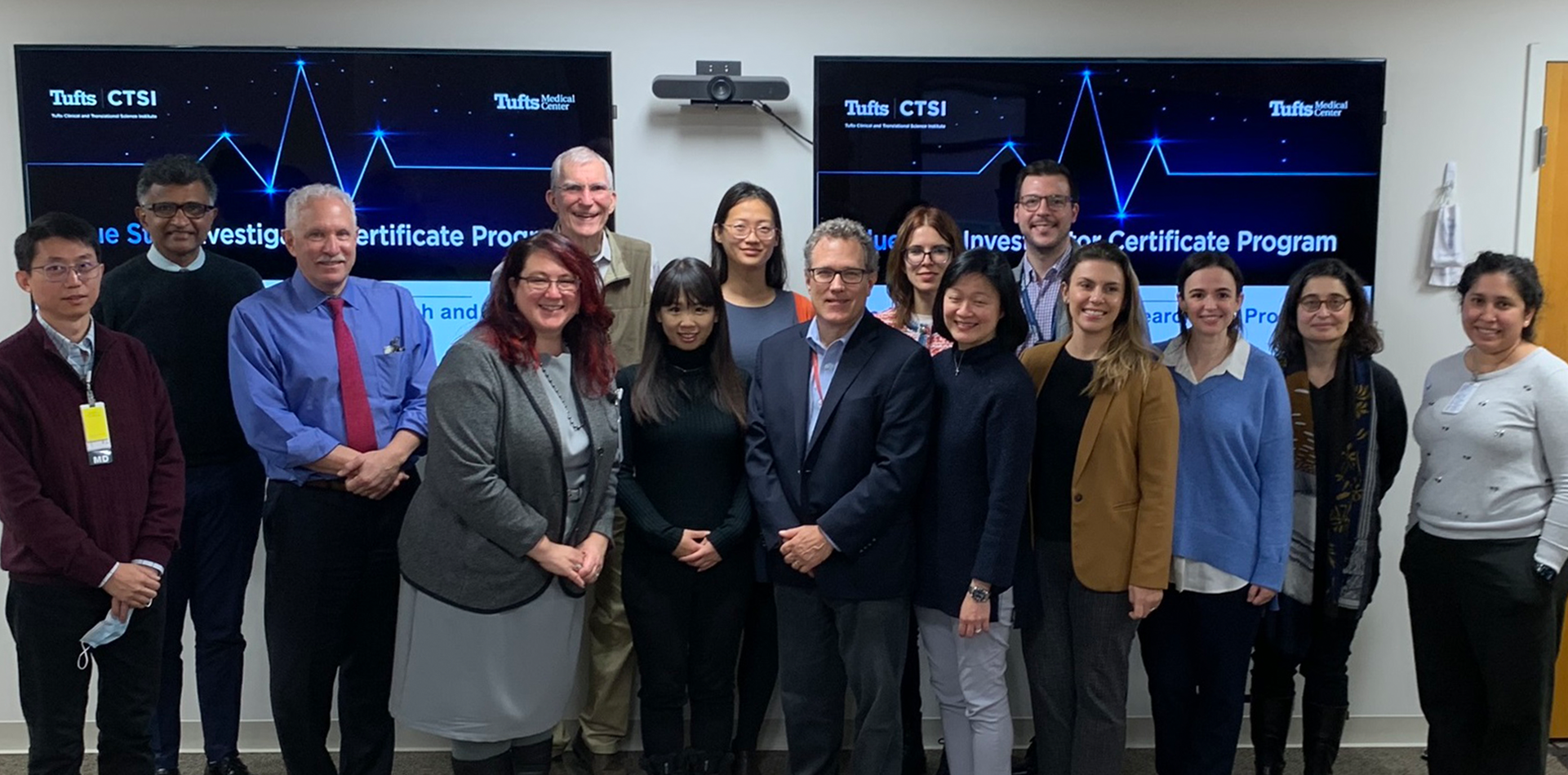What’s the key to speeding the process of discovery and development of solutions that improve human health? One critical element is multi-site collaboration to quickly enroll subjects into clinical research studies; however, the traditional Institutional Review Board (IRB) review process to establish these studies can be complex and time-consuming. Harvard Catalyst (the Harvard Clinical and Translational Science Center), in partnership with Tufts CTSI, found a way to hasten this process: the Harvard Catalyst Common Reciprocal Reliance Agreement.
Rather than having each site’s IRB review and approve a study protocol and its associated changes, the Reliance Agreement allows researchers to request that all institutions involved with a multi-institutional study rely on a single IRB to make sure the research is conducted safely, ethically, and without harm to human participants. This ceded review reduces duplicative work of multiple IRBs, takes less time for approval, and promotes collaboration across institutions participating in the agreement––allowing investigators to begin their multisite research sooner. Since Harvard instituted the Reliance Agreement in 2009, IRBs have ceded review nearly 90% of the time.
“Tufts Medical Center and Tufts University were the first institutions outside the Harvard system to join the Reliance Agreement, and many of our affiliated institutions have joined or will join within the next year,” says Jonathan M. Davis, MD, Tufts CTSI Regulatory Director.
As of 2014, nearly 30 institutions signed on to the Reliance Agreement, and ten more were considering whether to join. This network stretches across New England all the way to California.
“The Reliance Model remains a very high priority for NIH with a strong belief that it has the ability to streamline one of the most important aspects of the clinical trials system,” Dr. Davis says. “We are convinced that widespread adoption of this approach is moving ahead quickly, which should accelerate efforts in drug and device development.”
How does the Reliance Agreement work for researchers? Dual principal investigators (PIs) Karen M. Freund, MD, MPH, of Tufts CTSI, and Phyllis L. Carr, MD, of Massachusetts General Hospital, put the system to the test by requesting single IRB review for their two-institution project, a Longitudinal Follow-up to the National Faculty Survey.
The process of adding the second site went smoothly: Dr. Freund estimates the single IRB sped her protocol’s review by about three months. For studies with more than two sites, she believes IRB reliance could speed the process even more––saving especially valuable time for 12-month pilots or other short-term projects.
“It was amazing,” Dr. Freund says. “Because we were able to do things so quickly, we’re now in the analysis phase of our study. IRB reliance accelerated our ability to do the research.”



